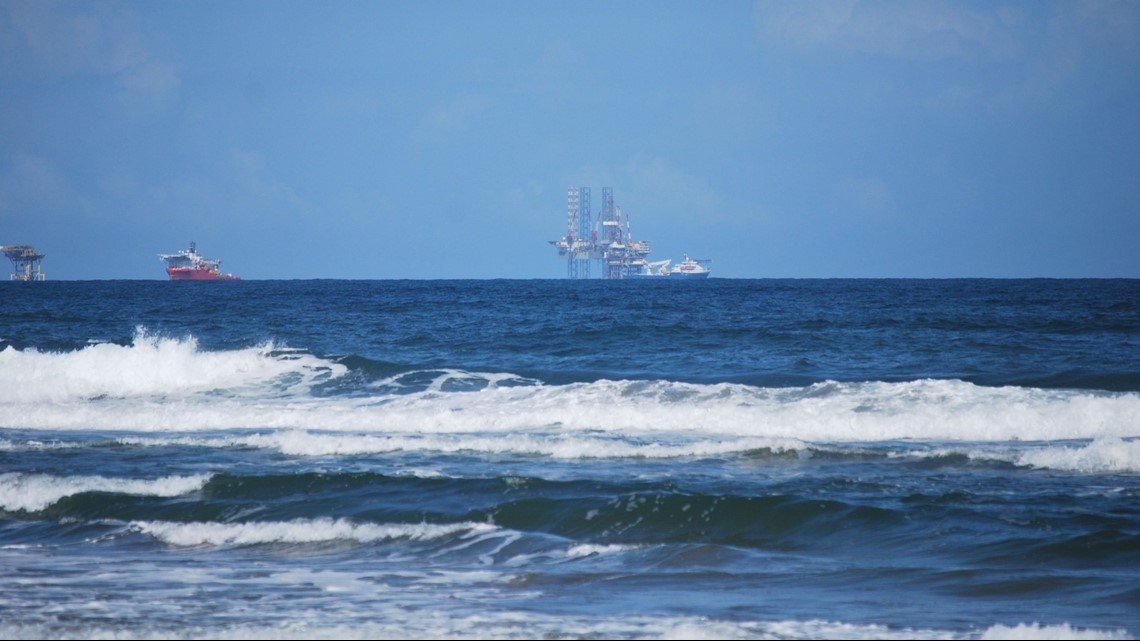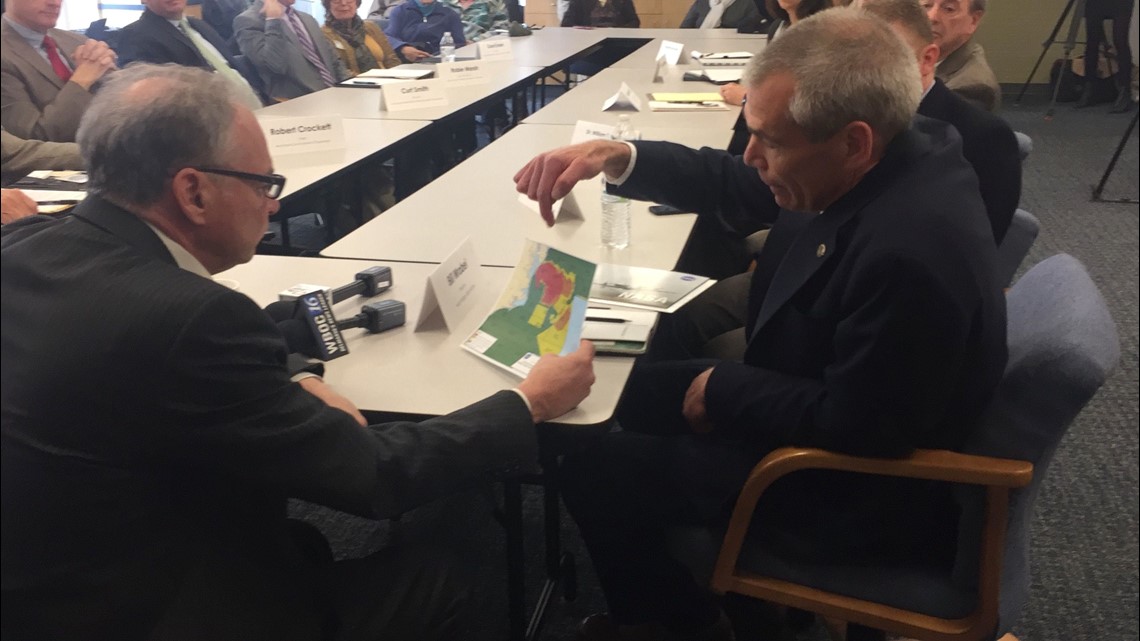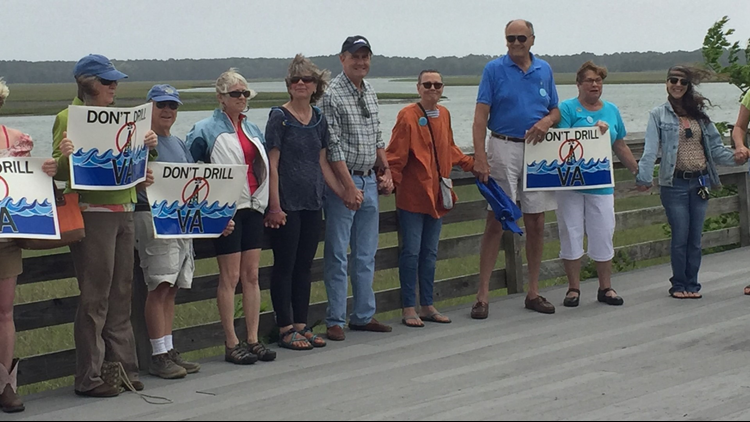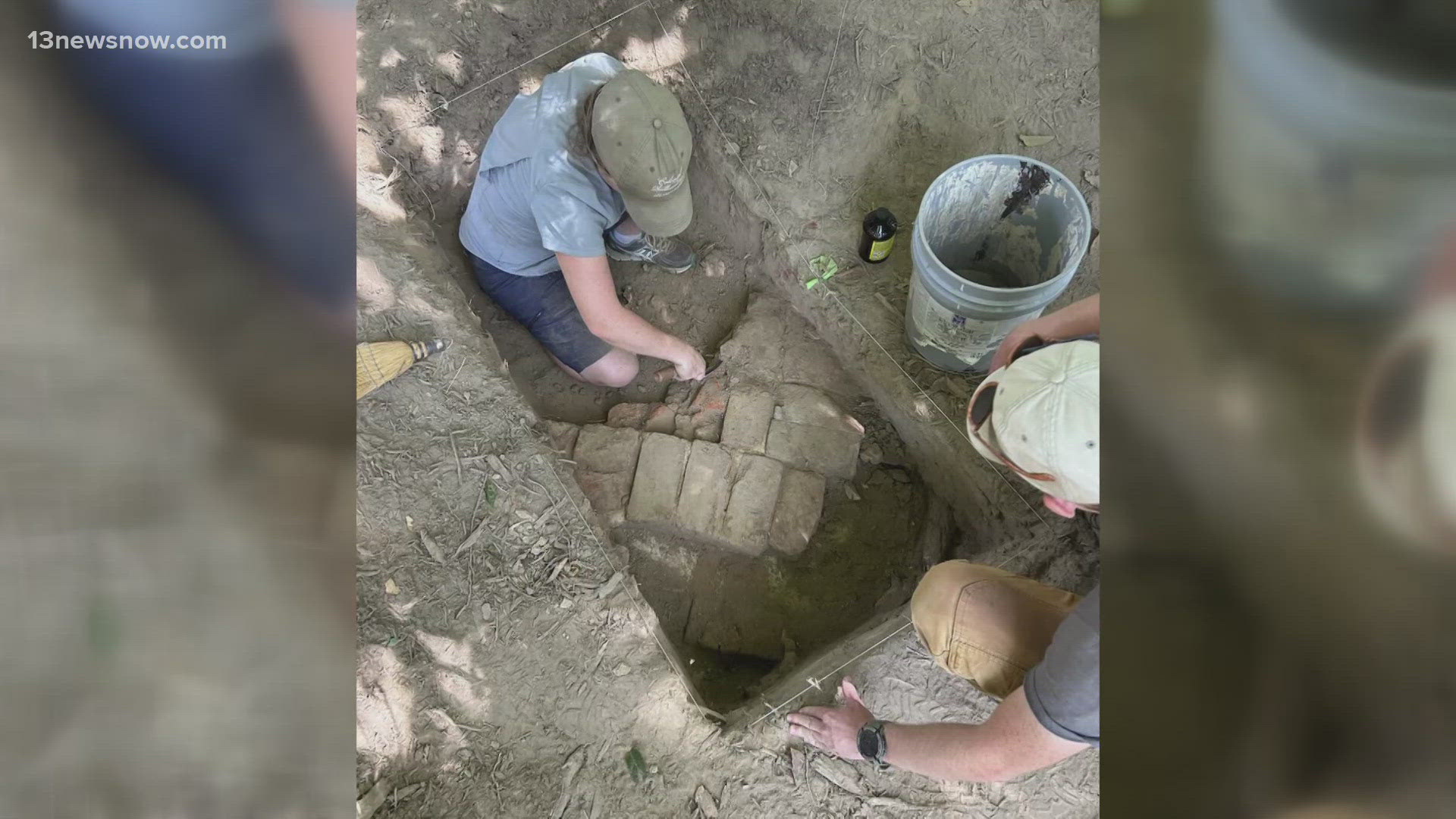WACHAPREAGUE, Va. (Delmarva Now) -- Initiatives are underway in Virginia by both a pro-drilling coalition and an environmental group that wants to stop the expansion of offshore drilling and seismic blasting in the Atlantic Ocean.
The federal government's proposed final five-year offshore leasing program plan is expected to be released next fall — a public comment period on the draft version closed in March, with no public meetings held on the Eastern Shore.
On the Eastern Shore of Virginia, leaders and residents have expressed concerns about the effects offshore drilling could have on aquaculture, the tourism industry, NASA and the Navy, among other concerns.
New pro-drilling coalition announced
The American Petroleum Institute, a trade association representing the oil and natural gas industry, June 6 announced the formation of "Explore Offshore," a new coalition of more than 100 community organizations, associations, businesses and local leaders in Virginia, North Carolina, South Carolina, Georgia and Florida who support increased access to offshore oil and natural gas, according to a press release.


Former Virginia Sen. Jim Webb is national co-chairman of the coalition, along with Jim Nicholson, Secretary of Veterans Affairs under George W. Bush.
Webb during a teleconference called increased access to offshore oil “a much-needed, commonsense step for America’s energy future."
"Energy security is national security, and domestic energy production is a key contributor to a healthy national economy," he said, noting the United States remains "vulnerable in an expanding global economy marked by ever-growing energy needs."
Nicholson also spoke about his view of the need for offshore exploration.
"In order to responsibly plan for tomorrow, we must continue to explore safely and develop domestic oil and natural gas resources today, in order to advance America's long-term energy and economic future," he said.
The coalition's Virginia effort will be led by Winsome Sears, a former Virginia Delegate from the 90th district and Mike Watson, a former Virginia Delegate from the 93rd district.


The API in its release said oil and natural gas will continue to make up more than 60 percent of America’s electricity use for at least the next 30 years, according to federal government projections.
Virginia gets half of its electricity generation from natural gas, according to the organization.
Advocates of offshore drilling also say it could bring jobs and money to the state.
The API projects that by 2035, the oil and natural gas industry could create more than 25,000 new jobs in Virginia and offshore development could result in $1.5 billion in private investment into Virginia and $230 million a year in state revenues.
Still, others disagree, saying the economic benefits of offshore drilling are overstated and the risks to coastal areas, including to their economies and the environment, are too great.
Non-profit: Drilling and exploration offshore 'pose a direct threat'
Two days after the API announcement, Oceana, an international non-profit organization dedicated to protecting and revitalizing the world's oceans, held a meeting on Chincoteague to discuss the perils of offshore drilling and associated seismic testing.
The meeting was part of an ongoing effort in Virginia, an organizer said.
Oceana's stance is that offshore drilling and exploration "pose a direct threat to coastal tourism and other local businesses that depend on a healthy and clean marine environment," according to a fact sheet.
Fishing, tourism and recreation support more than 86,000 jobs and generate $4.8 billion in gross domestic product along Virginia's coast, according to Oceana.
Additionally, the organization says the amount of undiscovered, economically recoverable offshore oil and gas projected to be off Virginia's coast would only meet domestic demand for about 30 days for oil and 27 days for gas.
Terra Pascarosa, the first organizer Oceana has had on the ground in Virginia, and Mid-Atlantic organizer Matt Heim led the meeting on Chincoteague.
"We had a really good showing from the community; about 40 people were there ... We got a lot of support," said Pascarosa, who has been on the job since October.
Based in Virginia Beach, she works to encourage localities throughout the state, and especially in coastal regions, to pass resolutions opposing offshore drilling.
Nine so far have done so.
In the bigger picture, more than 200 municipalities on the East Coast and more than 1,200 local, state and federal elected officials have come out in opposition to offshore oil and gas drilling, according to Oceana.
Additionally, the Business Alliance for Protecting the Atlantic Coast, an organization representing more than 41,000 businesses and 500,000 fishing families from Florida to Maine, also opposes drilling off the East Coast.
The Boards of Supervisors in both Eastern Shore of Virginia counties are among those that already have passed resolutions in opposition to offshore oil drilling.
Oceana would like to see that type of action also taken by towns on the Shore and elsewhere in Virginia.
Eastern Shore initiative
Pascarosa made a trip to the Eastern Shore last week to speak with officials in several towns — including Cape Charles, Exmore, Onancock, Wachapreague and Tangier, where she met with Mayor Ooker Eskridge and other community leaders.
Along with holding the gathering on Chincoteague on Friday night, the organizers gave out information at a booth at the Artful Flea market on the island the next day.
"Our hope is that we will be able to get all the cities I mentioned, as well as Chincoteague and Tangier, to pass resolutions. We have got constituents from each area that want to go meet with the town council," she said.
Cape Charles officials told her they will put the matter on the town council's meeting agenda for discussion next month.
"I plan to touch base with any other areas on the Shore that are interested in passing resolutions and would like for us to come and visit and give information to their council members ... I'm doing the same thing all over the state of Virginia," Pascarosa said.
Oceana has been working in opposition to offshore drilling for years, but the Trump administration's announcement in January that it would allow new offshore oil and gas drilling in nearly all United States coastal waters — lifting a ban imposed by the Obama Administration — added urgency to the effort, she said.
"We're just beating the drum a little harder now, and we've got more organizers on the ground than we ever have before."
Additionally, seismic testing permits, required to allow exploration of potential areas for offshore drilling using seismic airgun blasting, could be issued any day, according to Pascarosa.
The process, used to search for oil and gas deposits deep below the ocean's surface, is of particular concern to Oceana.
"The last thing we want to see is seismic testing on our coast. The negative effect it has on our marine mammals is just devastating. That's not anything we want to see happening at all in Virginia, or anywhere on the coastline," she said.
In addition to the Accomack and Northampton County boards, both Republican and Democrat federal elected officials who represent the Virginia Shore have gone on record as opposing drilling off the state's coast, as has Gov. Ralph Northam.
Still, the Virginia Congressional delegation is not united in its opposition, as Republican Congressman Scott Taylor, who represents the 2nd District, told a group at the annual State of our Waters event earlier this month on the Eastern Shore.
"I have officially come out against offshore drilling," Taylor said, but added, "... In Virginia, our delegation is not 100 percent opposed to it."
Sen. Tim Kaine, a Democrat and former Virginia governor whose position on offshore drilling has evolved over time, quickly weighed in against exploration and drilling off the Virginia coast after the administration's January announcement.
Kaine spoke about his position at a roundtable he convened on the Eastern Shore in April to discuss the issue.
"There are pillars to the economy here — aquaculture, tourism, ag(riculture) — a lot of the pillars depend upon the cleanliness of our coastal waters or the Chesapeake Bay. There's also a pillar of defense spending, which depends upon having relatively untrammeled access to training space," Kaine said, adding, "These are ... rock-solid pillars; we don't have to speculate about them — we know what they produce. To risk the pillars that we rely on for a prospective — not guaranteed — additional economic pillar doesn't seem smart to me."



